In 2017 December, I organized a workshop to encourage people to make their own map based on their own subjective experiences of a city. This article explains the philosophy behind this workshop as well as why and how much map making matters.
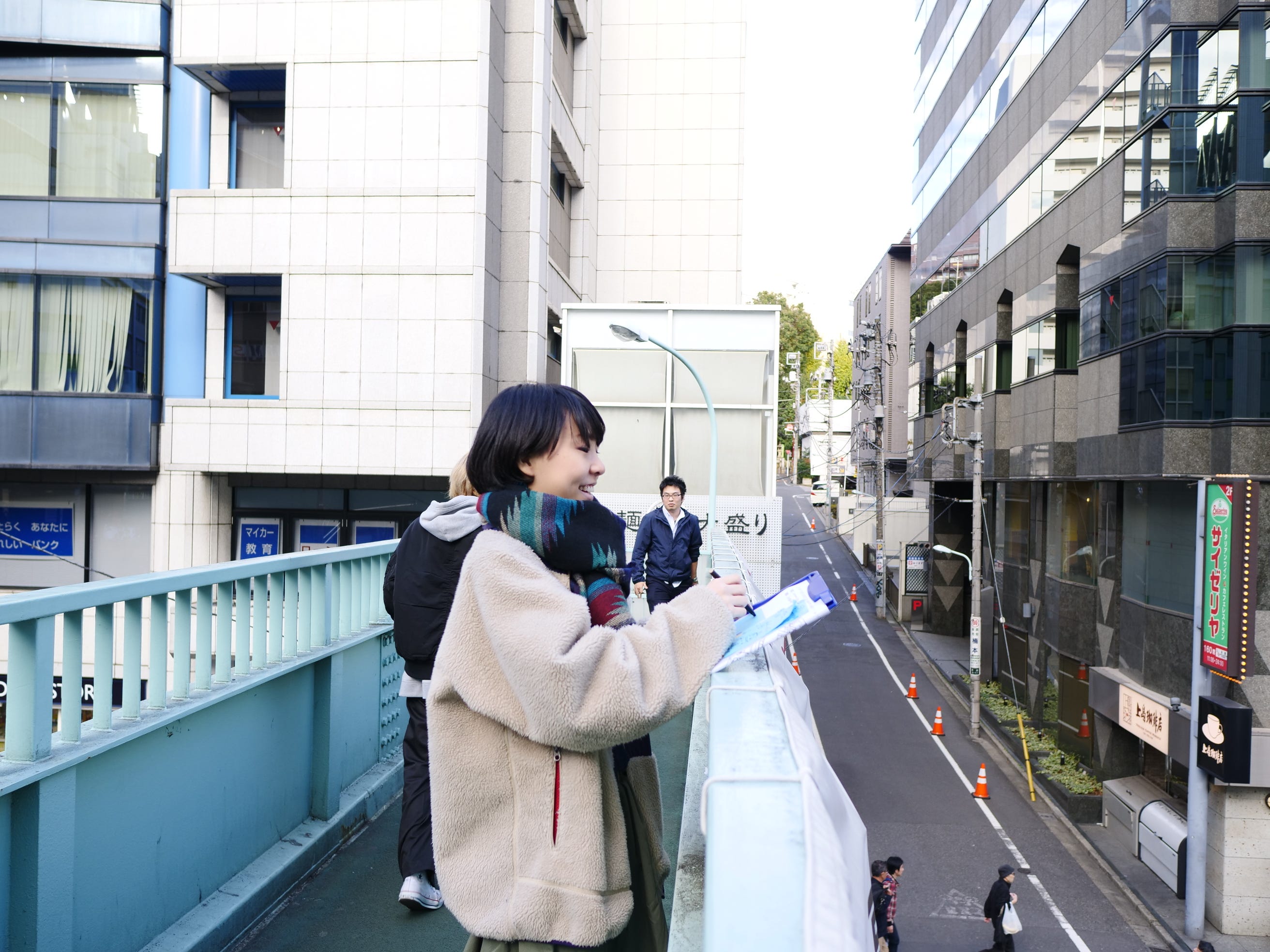
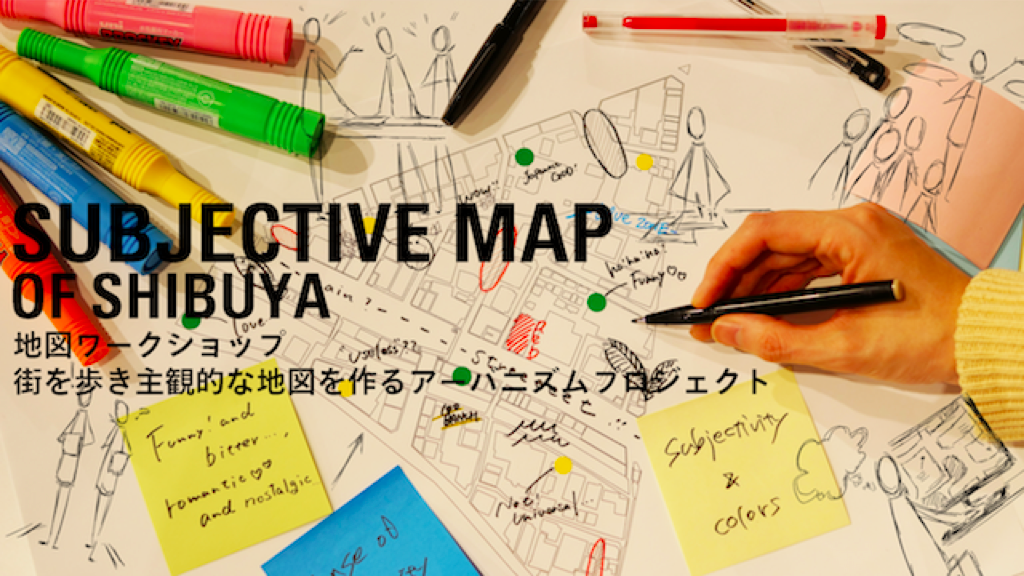
The idea started from this beautiful map
A few months before the workshop, I traveled to Bangkok, Thailand, for a holiday with some of my best friends. It was my first journey to Thailand and I didn’t have any prior knowledge about the city. For the first few days we visited the major famous temples and markets etc., all the touristic spots for which you can easily find information on Google or in guidebooks. However, I knew that something was missing.
I appreciate local culture and the daily life that is lived and constantly being updated by the people who live there. For me. it is far more meaningful to visit a local community center than to over-spend in an expensive restaurant in a touristic city center.
Unfortunately, Google Maps couldn’t give me what I wanted, even with intensive research. What changed my stay in Bangkok was this beautiful map, which I found by change at a local creative space called the Jam Factory Bangkok.
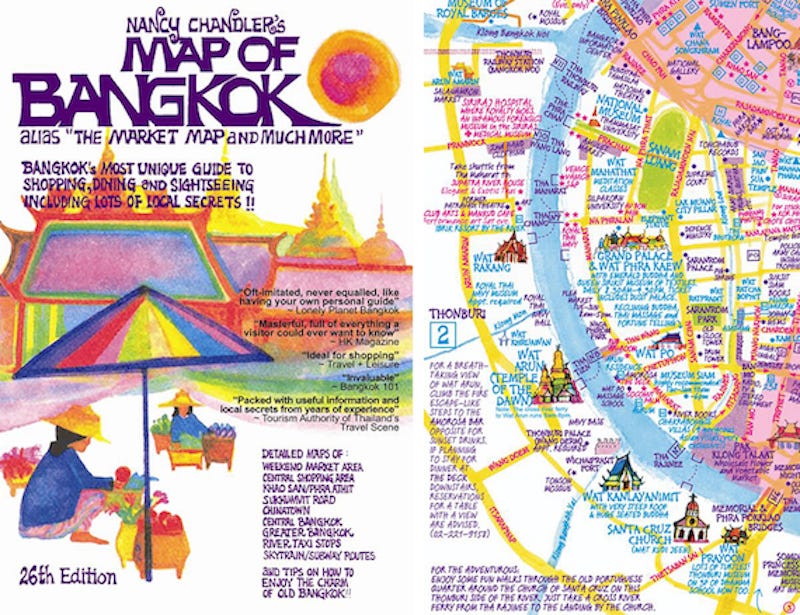 Image by Nancy Chandler’s Thailand
Image by Nancy Chandler’s Thailand
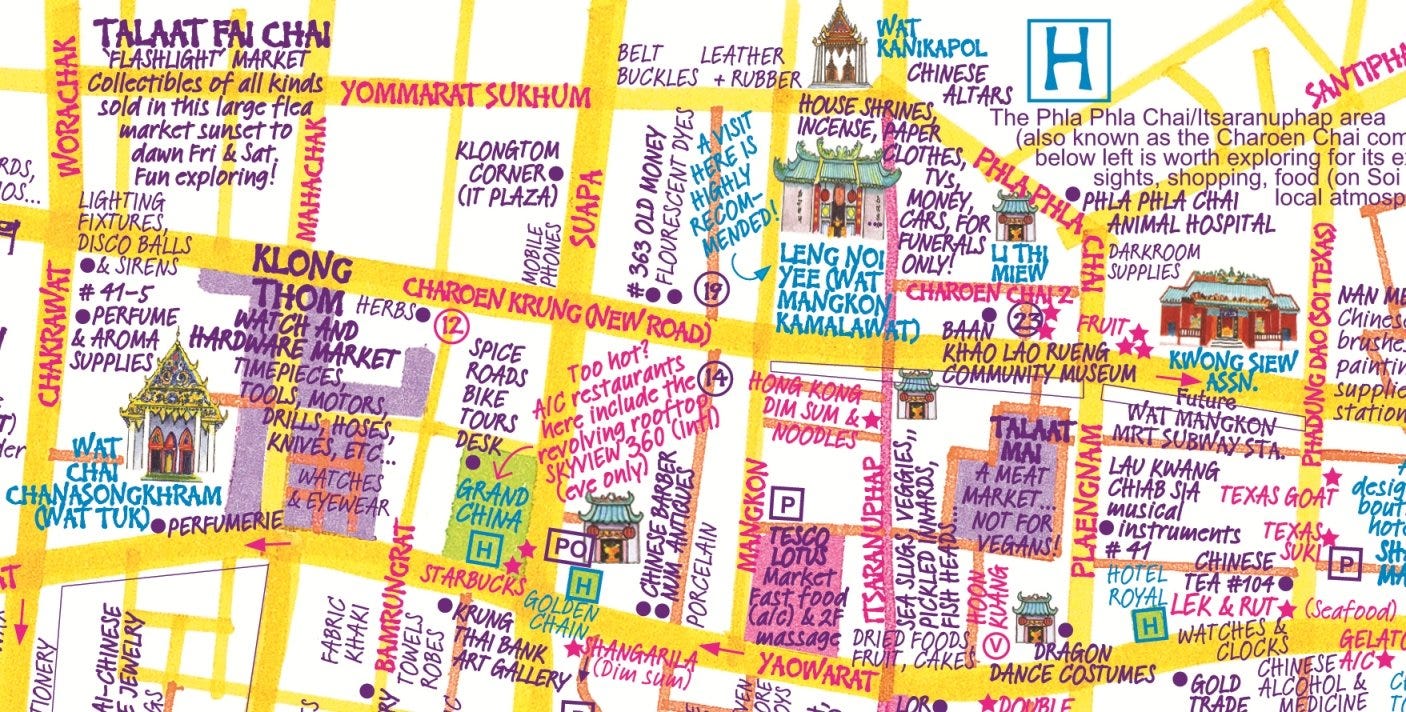 Image by Nancy Chandler’s Thailand
Image by Nancy Chandler’s Thailand
What’s so special about this map, with its excellent hand-drawing, is that it appears very… let’s say “biased” in a good way. Sure, there are some objective facts written on it, such as the names of the temples and so on, but you can really feel the presence of a map maker who has walked through and “felt” specific parts of the city in their own way. It talks about all the seemingly “useless” small things that you never read on Google Maps.
It even reminds me of USE-It Map Europe, which is an alternative map making movement for young travelers that I can never stop loving.
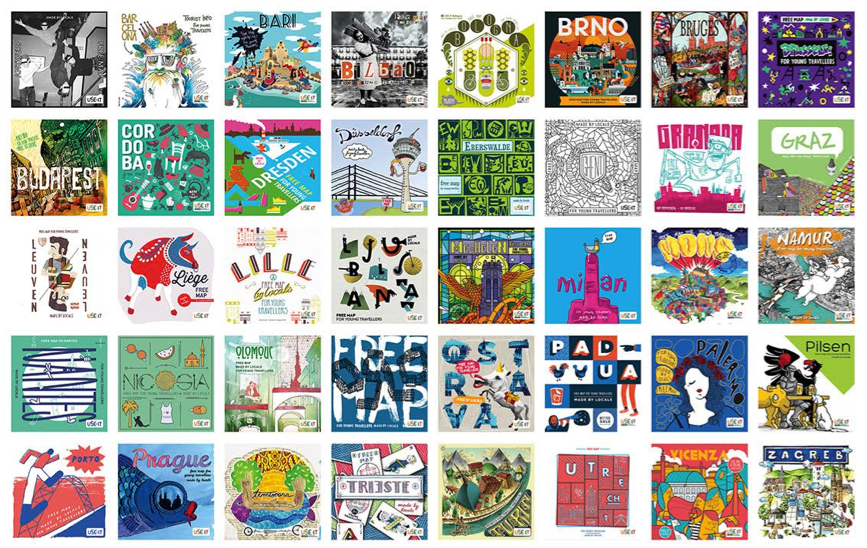 USE-it Map Europe: https://use-it.travel/home
USE-it Map Europe: https://use-it.travel/home
No map is neutral
Maps tell stories.
We see maps on a daily bases: On our phones, in the stations, in guidebooks etc… to get from point A to B. People tend to think that the maps we see/use every day — especially digital maps like Google Maps — are something very logical and objective. We simply don’t question them. On the other hand, something like Nancy Chandler’s map of Bangkok, which contains personal opinions, feelings, and memories, might be judged as “illogical”.
But is it really so black and white?
In fact, we can’t trust these “logical maps” as a pure “fact” either.
This brilliant talk by Monica Stephens teaches us to be more critical about what digital maps (and analogue maps, even though they aren’t mentioned in the talk) are showing us. I won’t summarize her argument here in detail, but her message is clear — our maps are different based on our world view. And we should wonder whose world view and whose perception we are seeing on the maps, and whose perspective has been left out.
For instance, the Mercator projection has famously been criticized for spreading a western-oriented world view, and there is an extreme inequality of the distribution of spatial information/data that covers the Earth’ surface.
This is why Henk van Houtum in his TED talk powerfully calls for the need to make new maps, to free the map from politics and emancipate it from the dominant world view — and make it our own.
Subjective Map Workshop
What if we each had our OWN map, one that didn’t get filtered by Google Maps and someone else’s world view? What if we had maps that talked about the small, local details that are otherwise left out by mainstream map making?
With this motivation, some of my colleagues and I decided to throw a subjective map workshop in different parts of Tokyo — and we chose Shibuya as the first location.
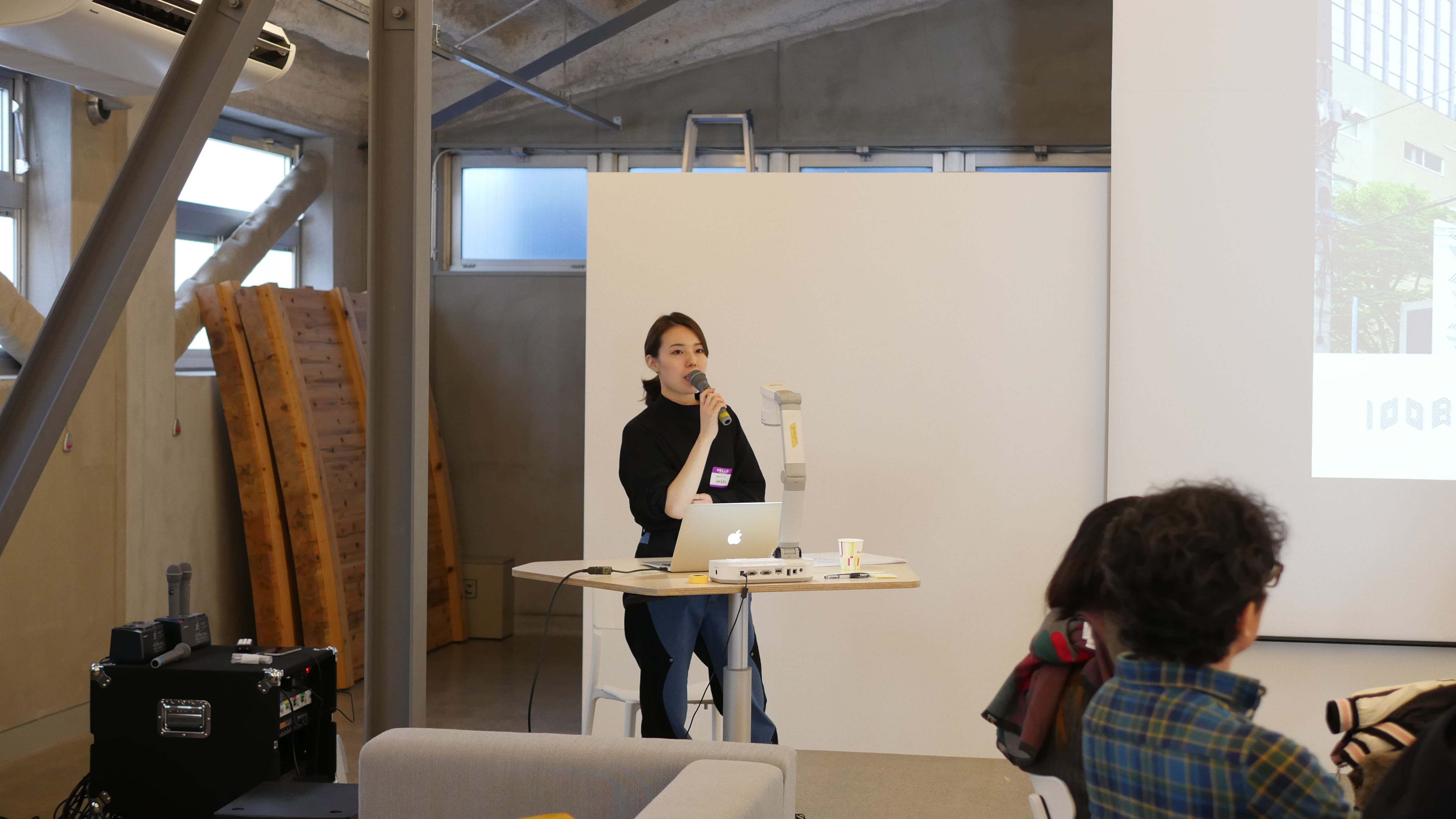
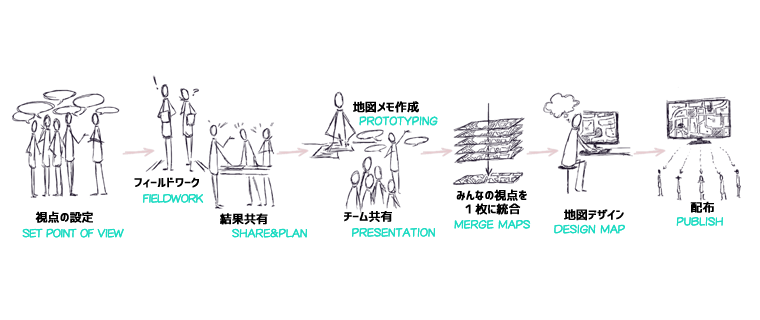 The idea was to collect multiple ideas and combine them together, and to make it sharable with others!
The idea was to collect multiple ideas and combine them together, and to make it sharable with others!

At the beginning, we learned map making techniques and the storytelling power of maps. Afterwards we just simply went out onto the streets for individual fieldwork, and wrote down our personal stories or opinions through own perspectives. For those who didn’t know what to do, I advised them to pay attention to personal memories and any attachments to a specific part of the city as well as sense of belonging, tips to enjoy favorite spots, even smell, sense of security, light and darkness, and so on.
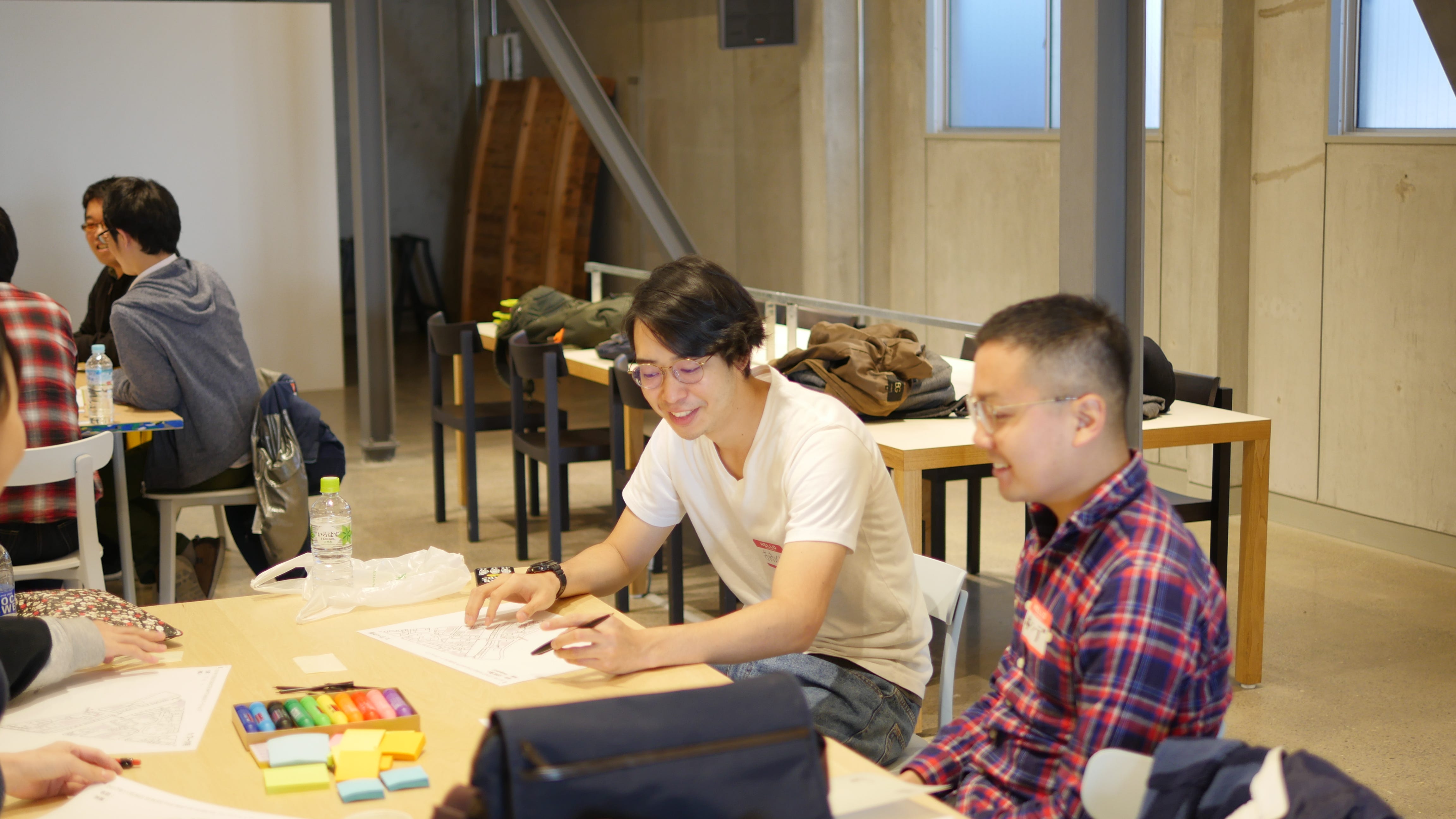
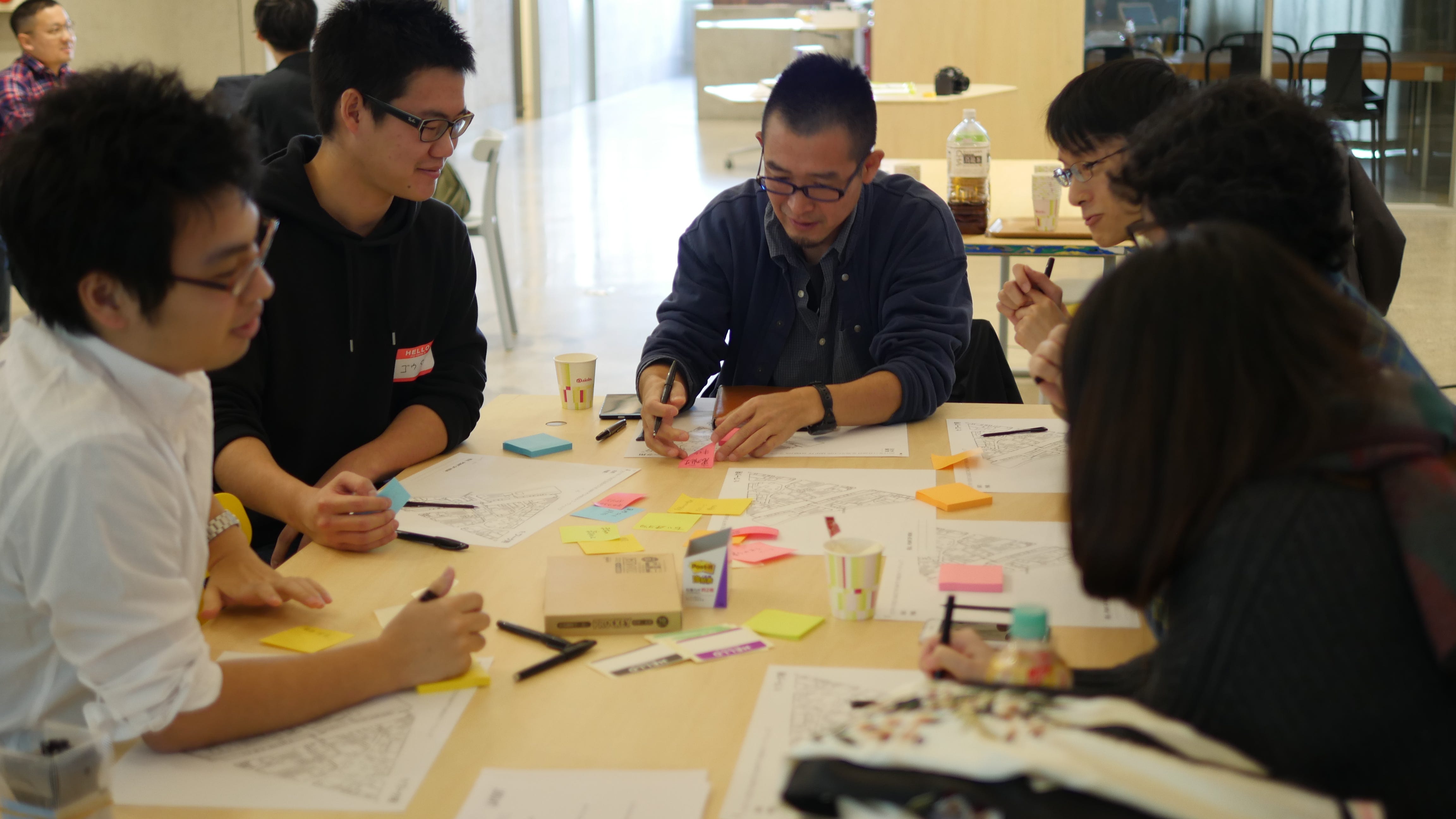
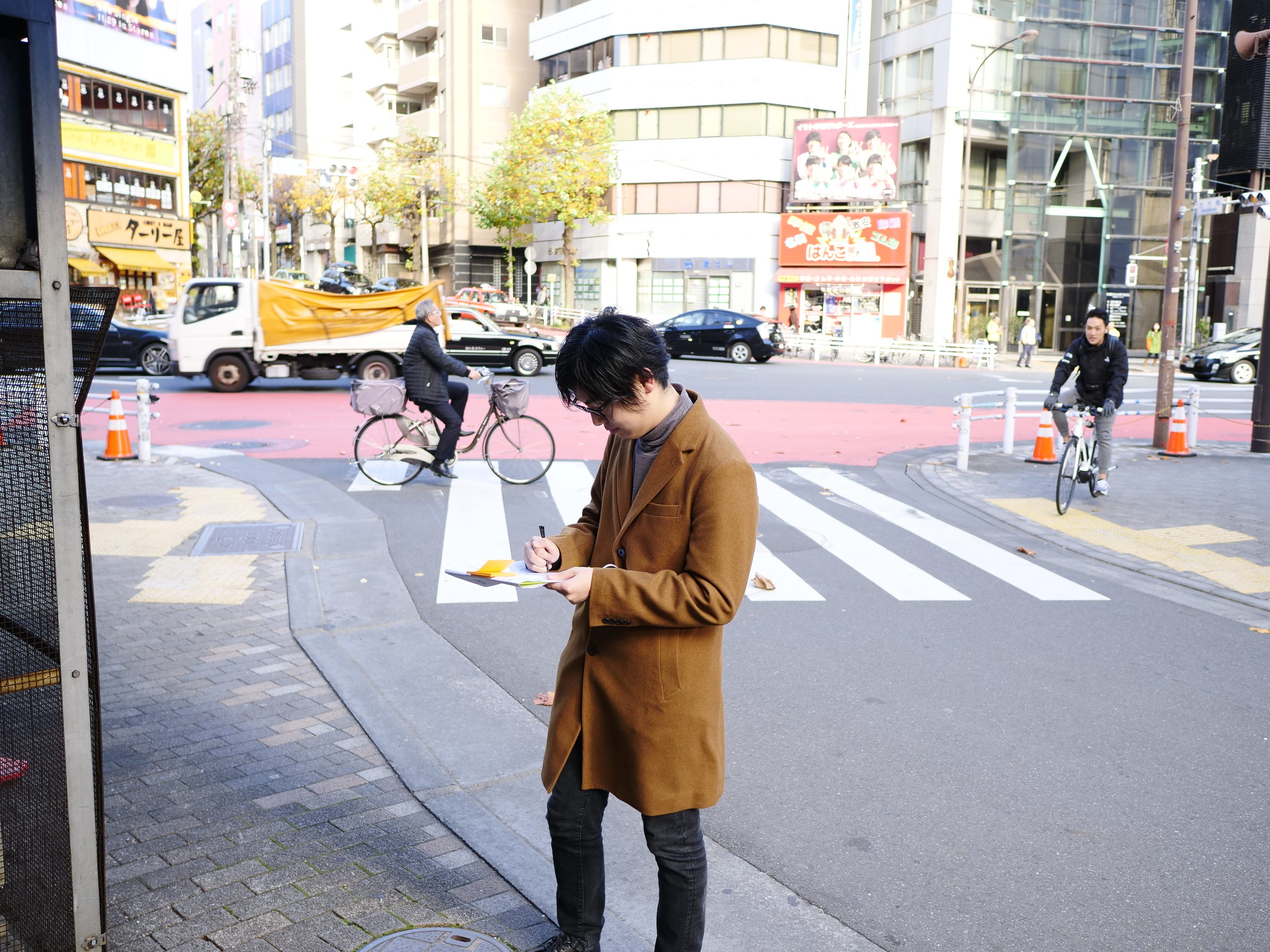

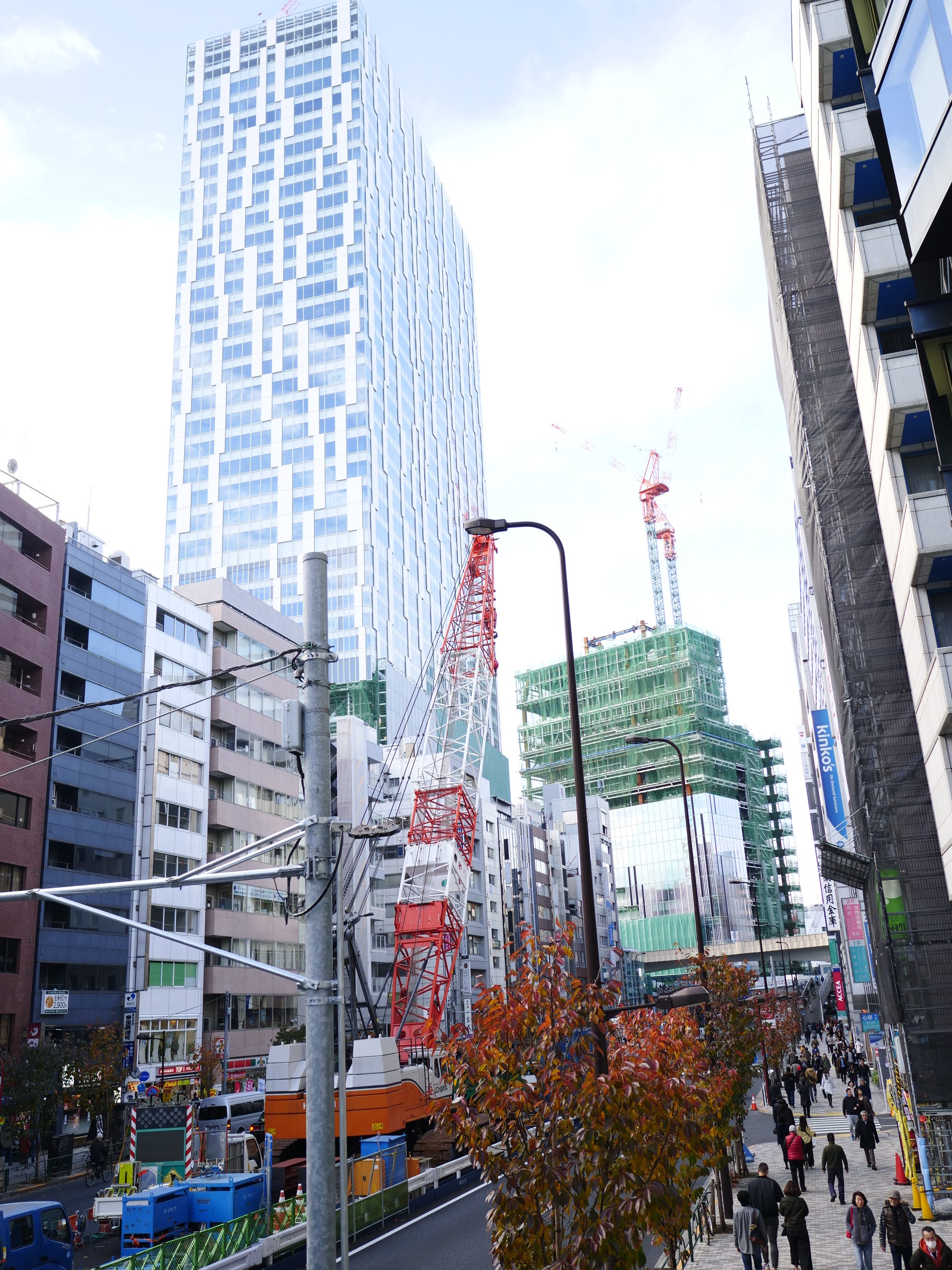
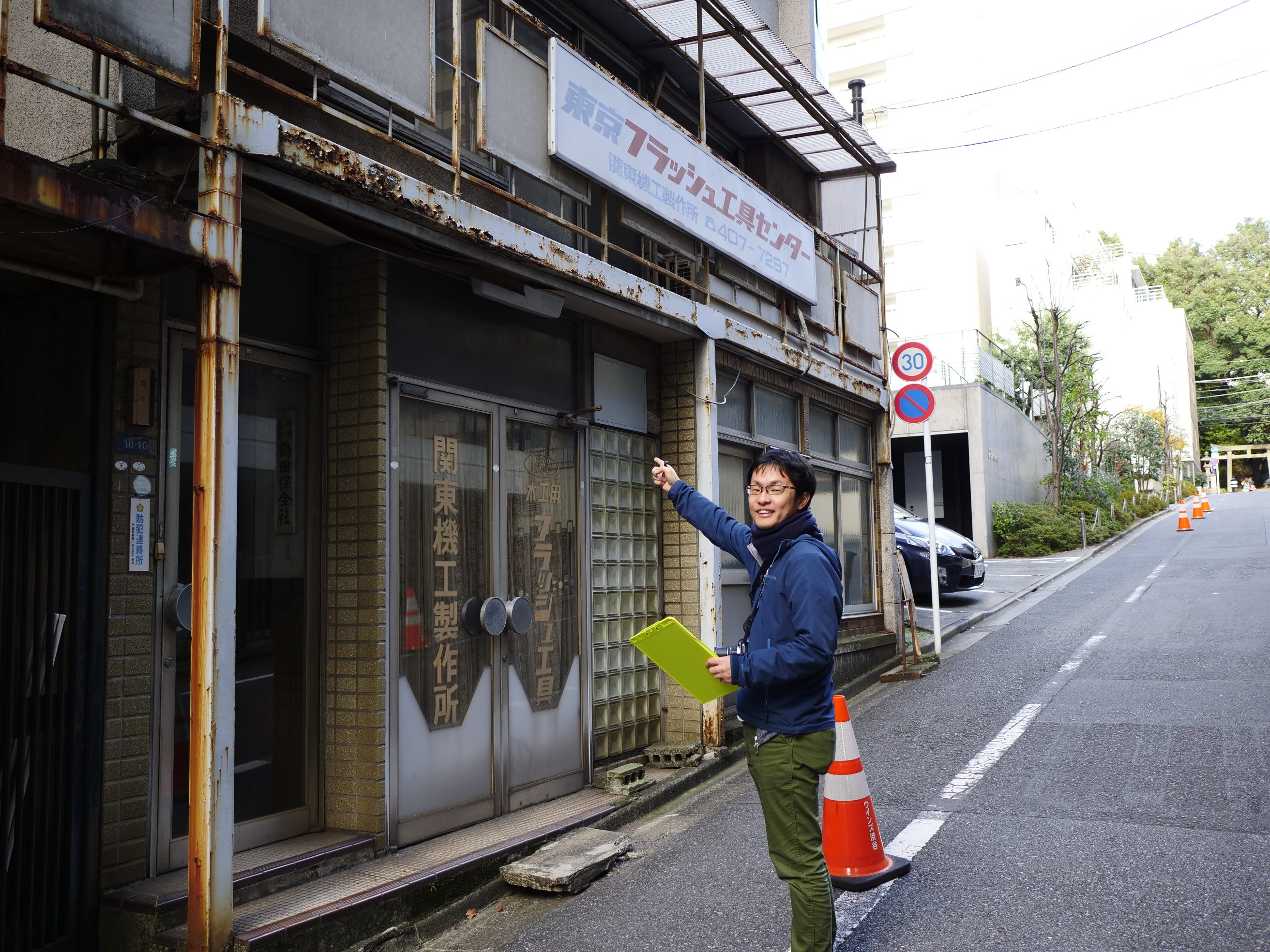
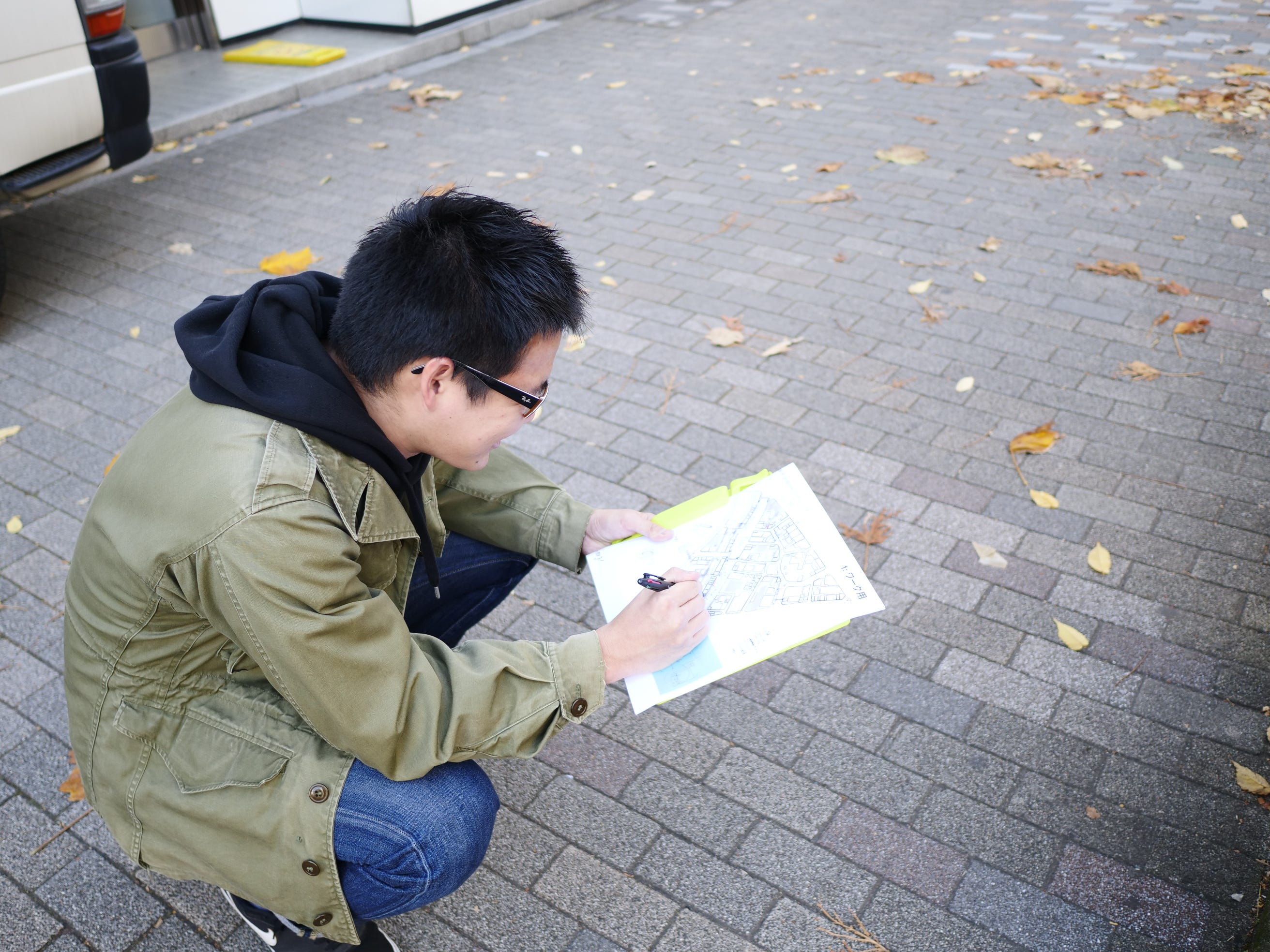
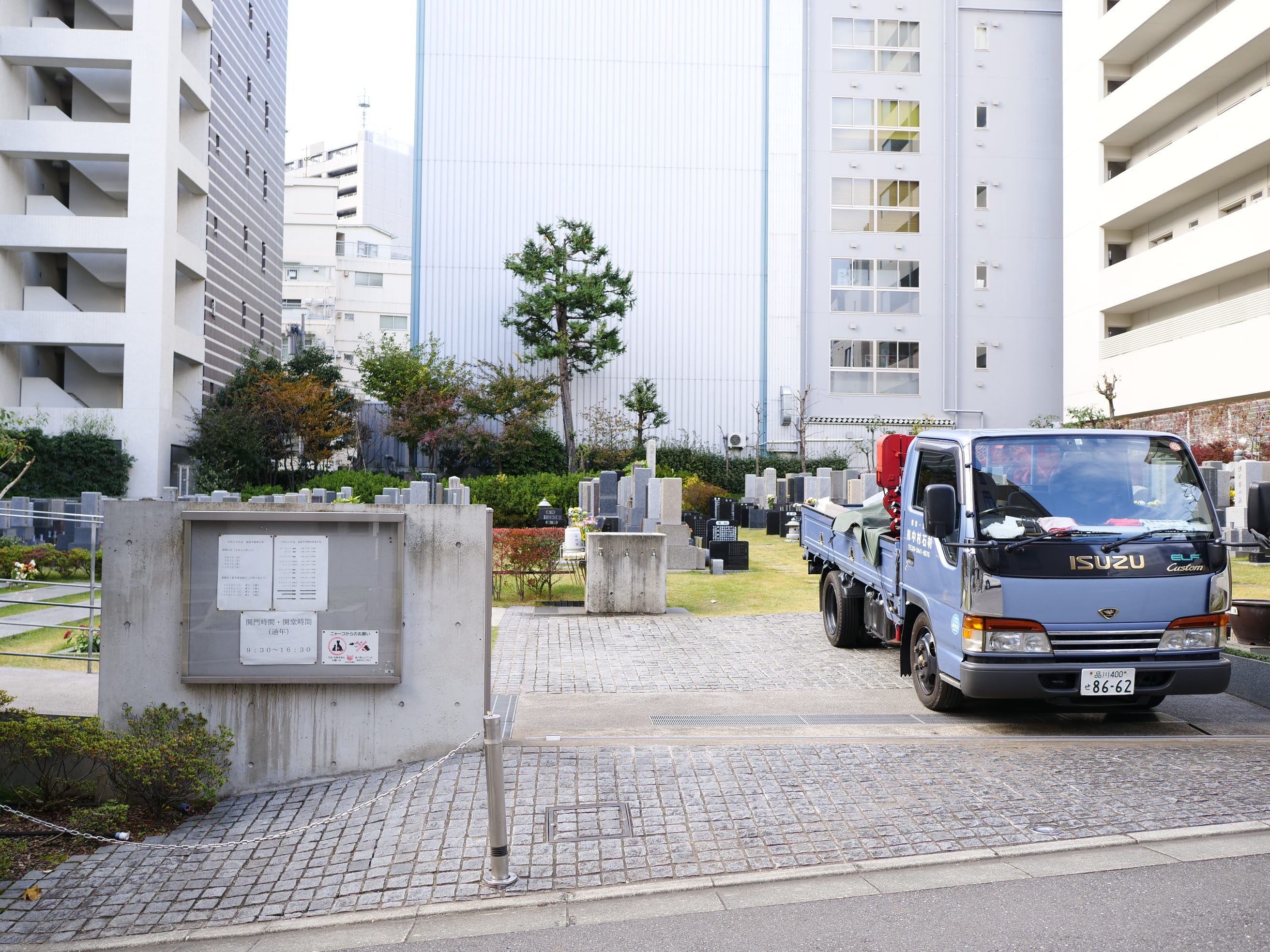
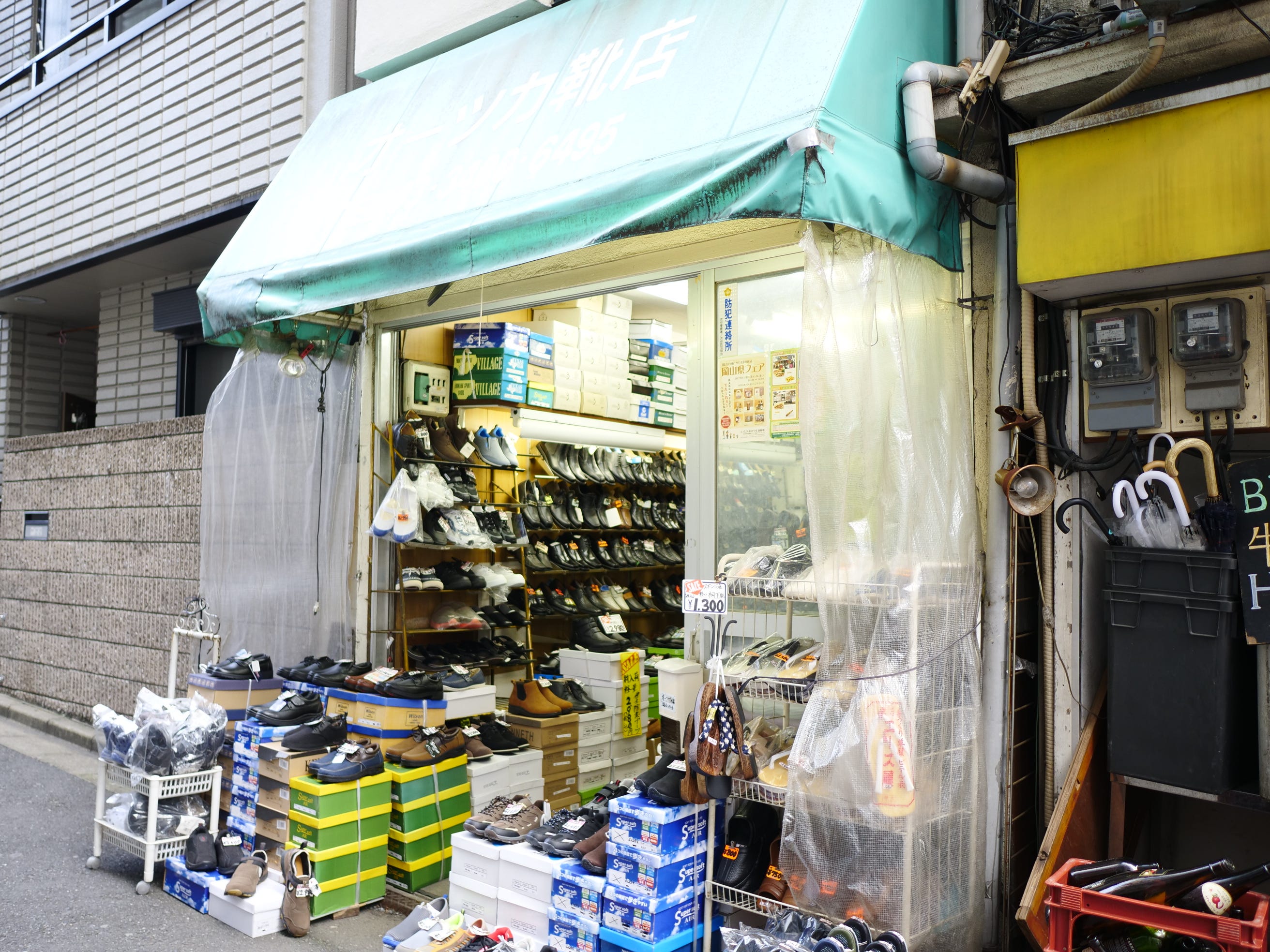
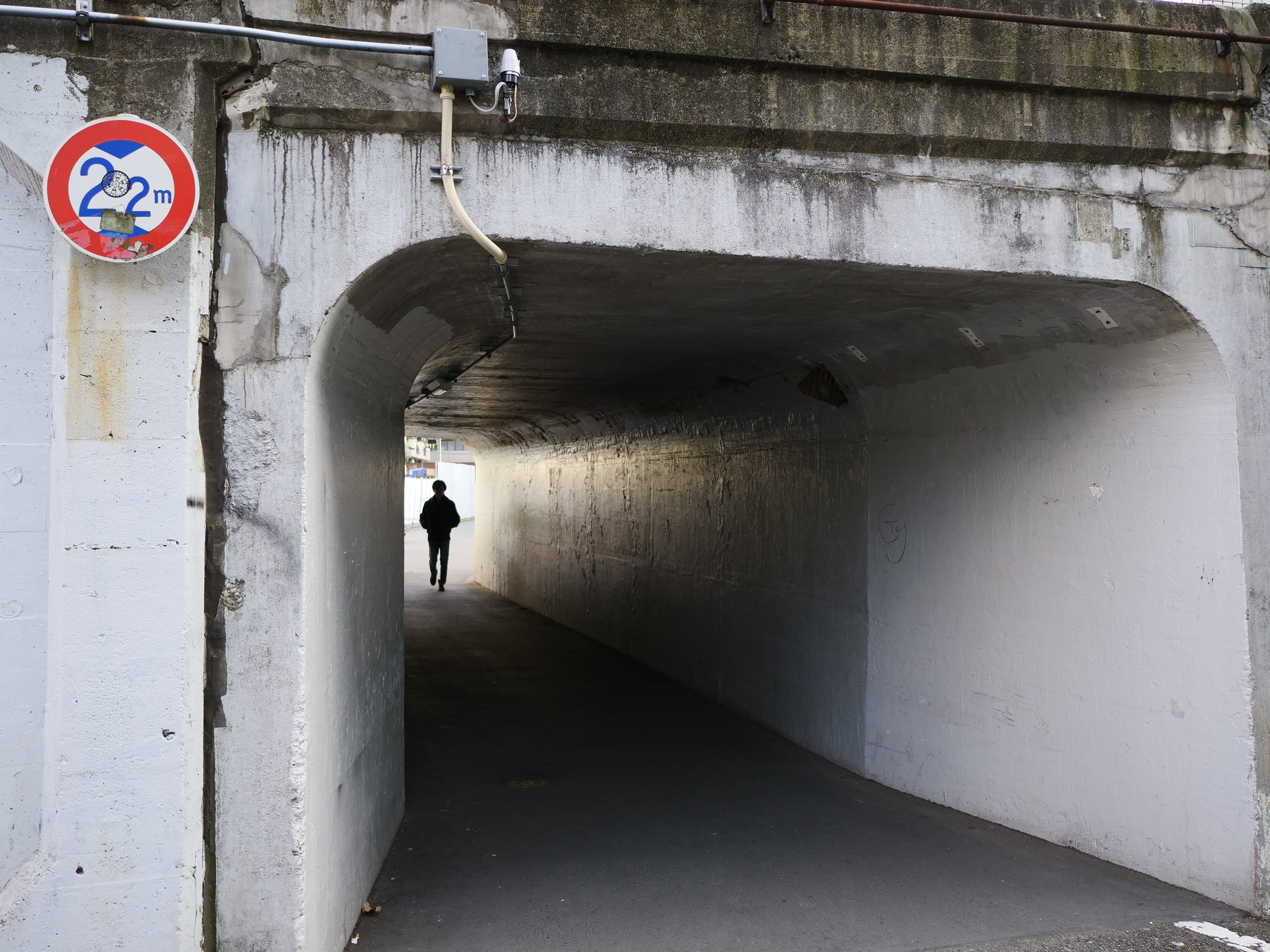
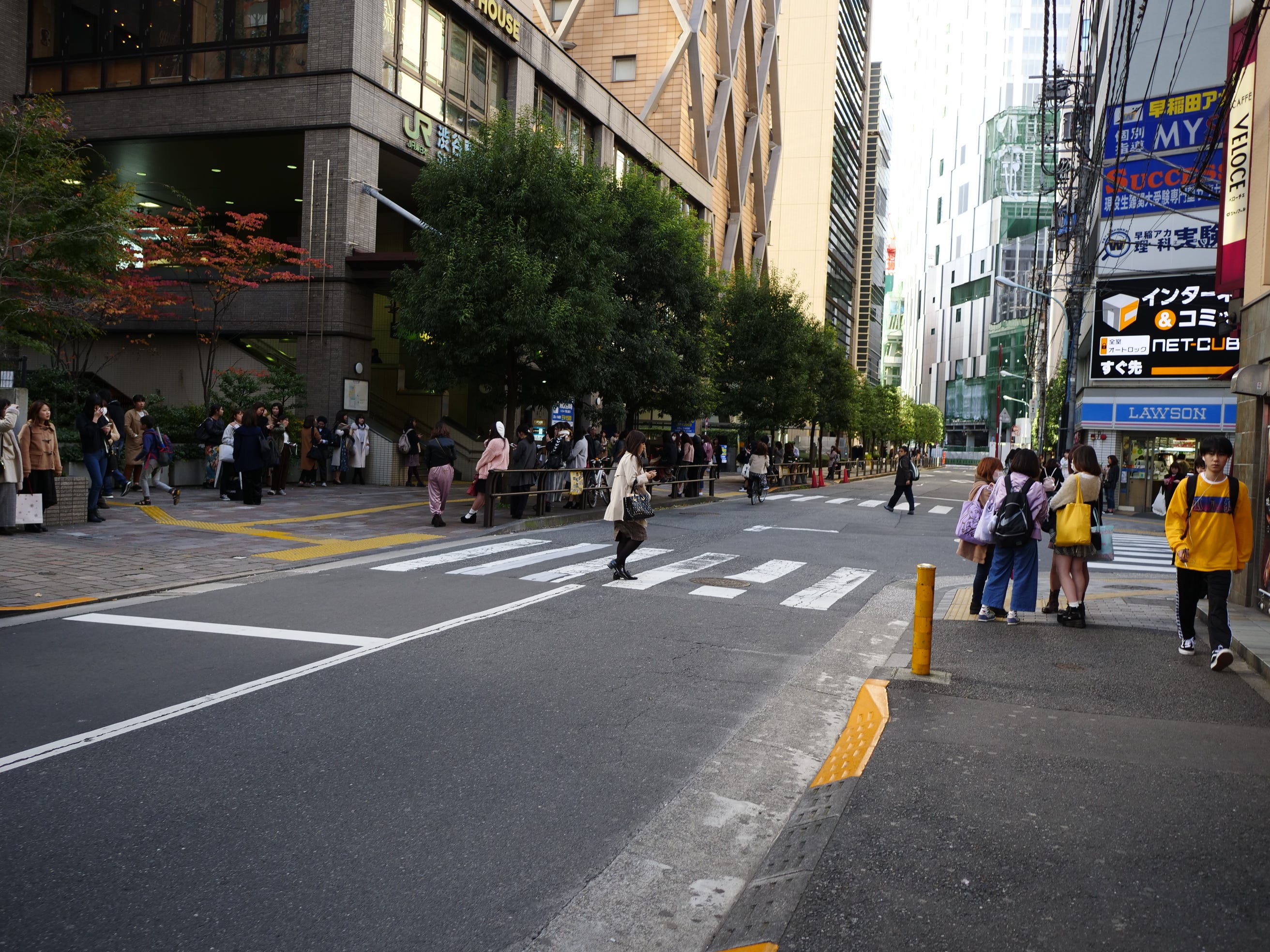
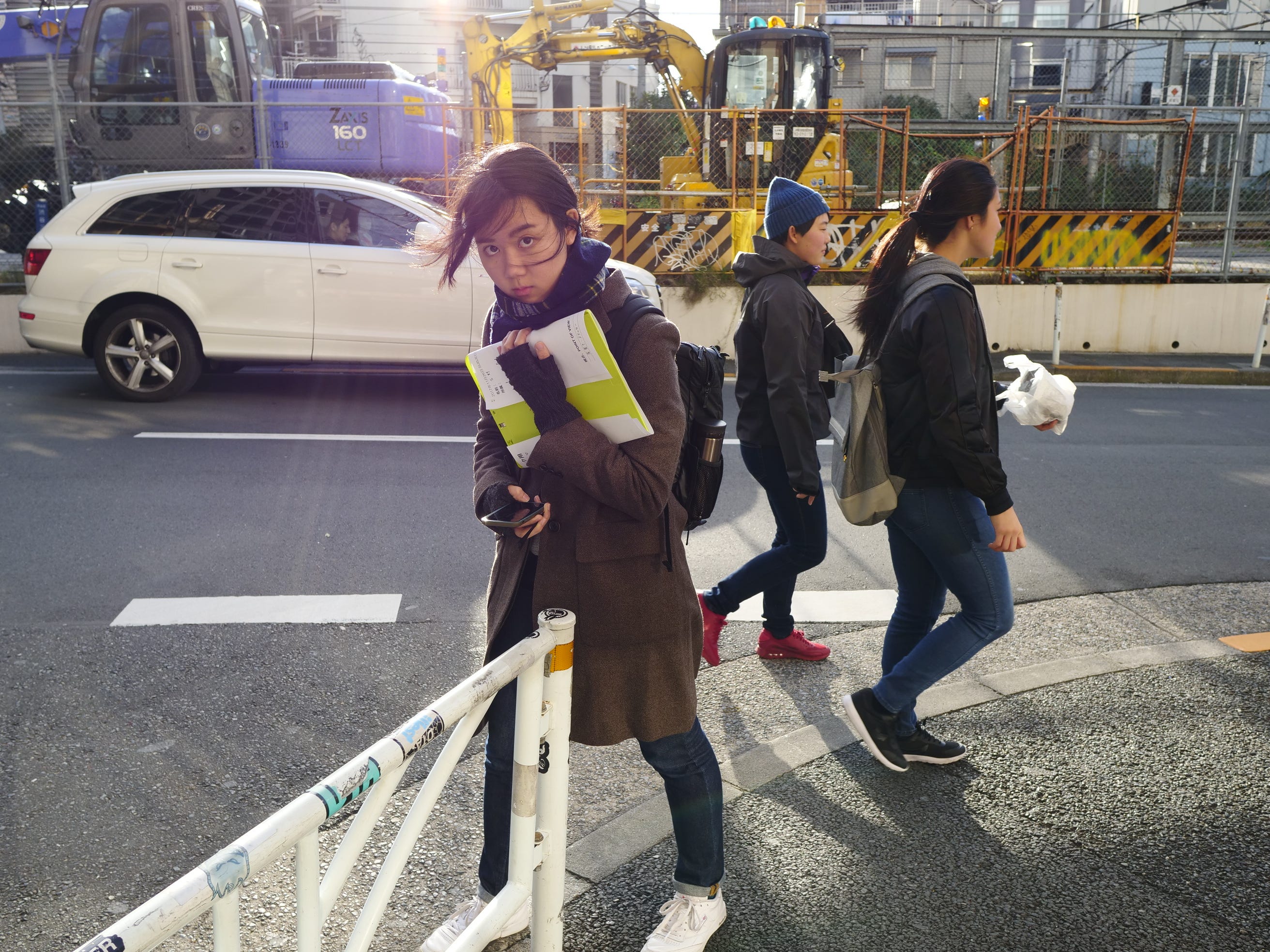
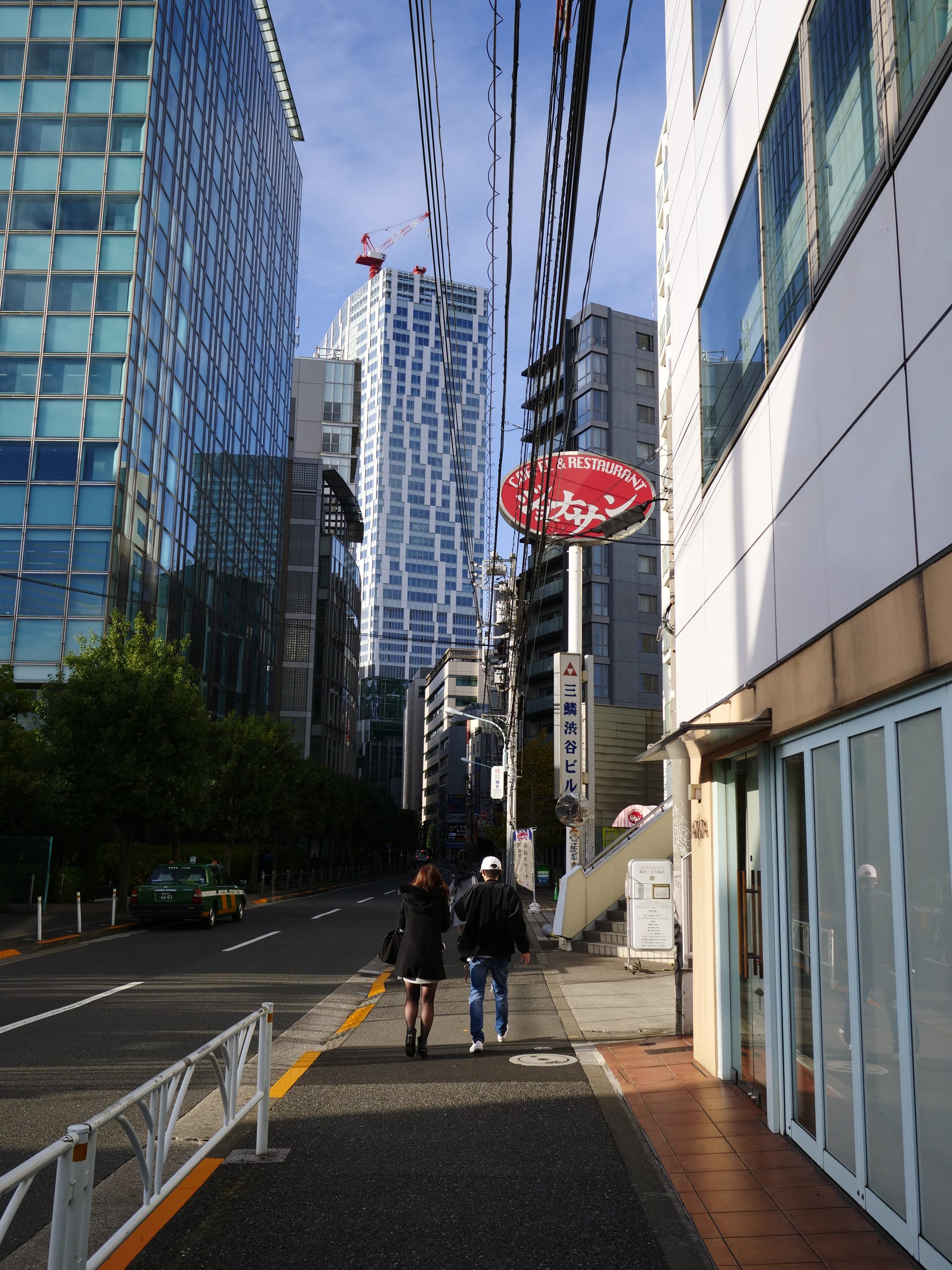
This is the result. And what’s next?
In the end we had some incredibly fun and creative maps that were directly related to their creators’ personal ways of making sense of the urban surroundings.
This is just one of the examples from the participants. She is someone who always pays attention to trashcans when she walks in Shibuya, and is always trying to discern the personalities of each of them. This highlights the hidden parts of our everyday life, something that is not widely discussed but definitely part of our urban life at an unconscious level.
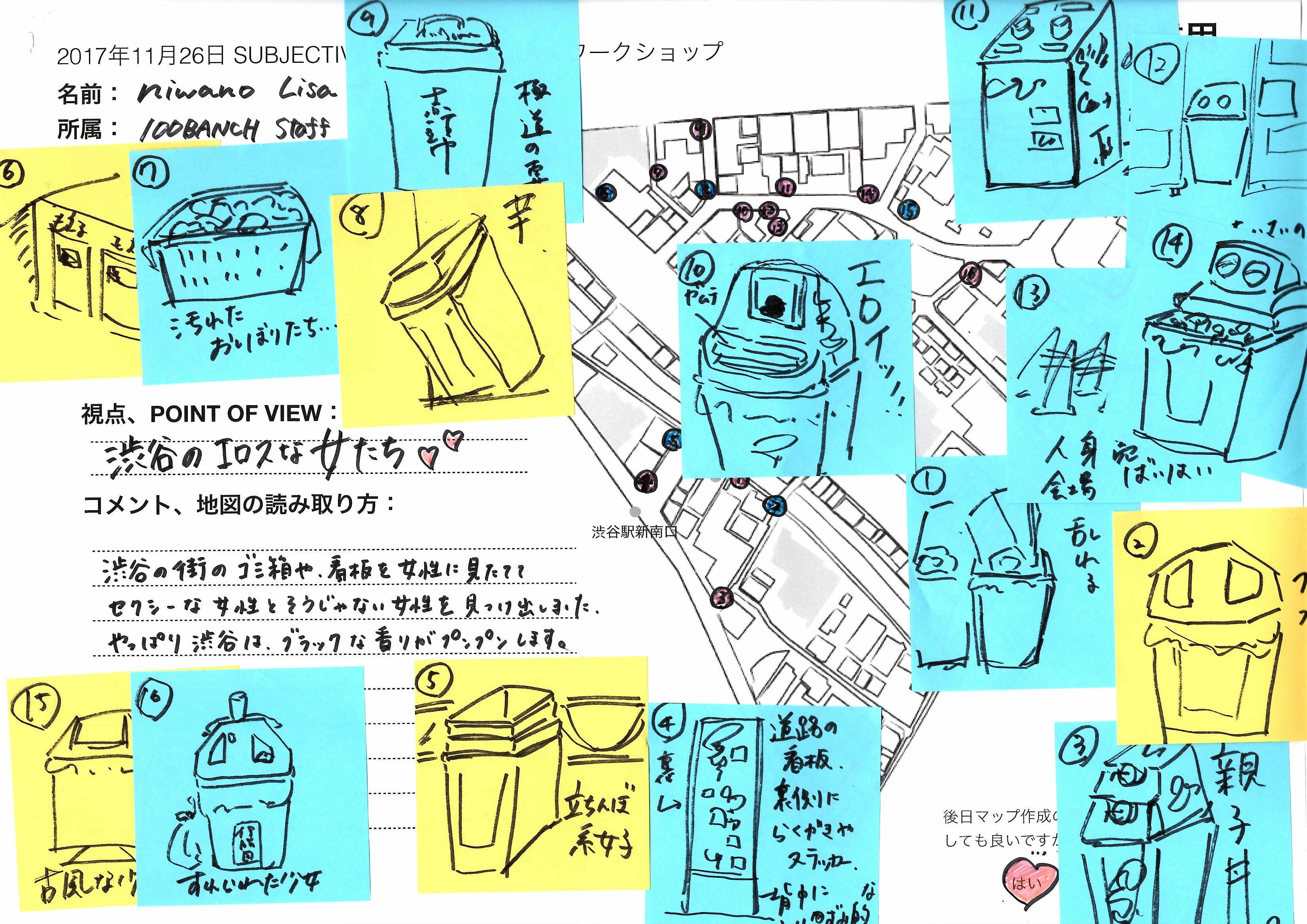
I’m in the process of synthesizing all the maps into one single map (this is the tough part…) and it should soon be ready for distribution to involve more people in this subjective map movement. Wouldn’t it be fun to think about a subjective map#Paris or a subjective map#Toronto?
It would be nice to have more critical map lovers who understand and are careful about how much our minds and spatial understanding are influenced by the dominant existing maps and other forms of spatial information.
Thanks for reading!


